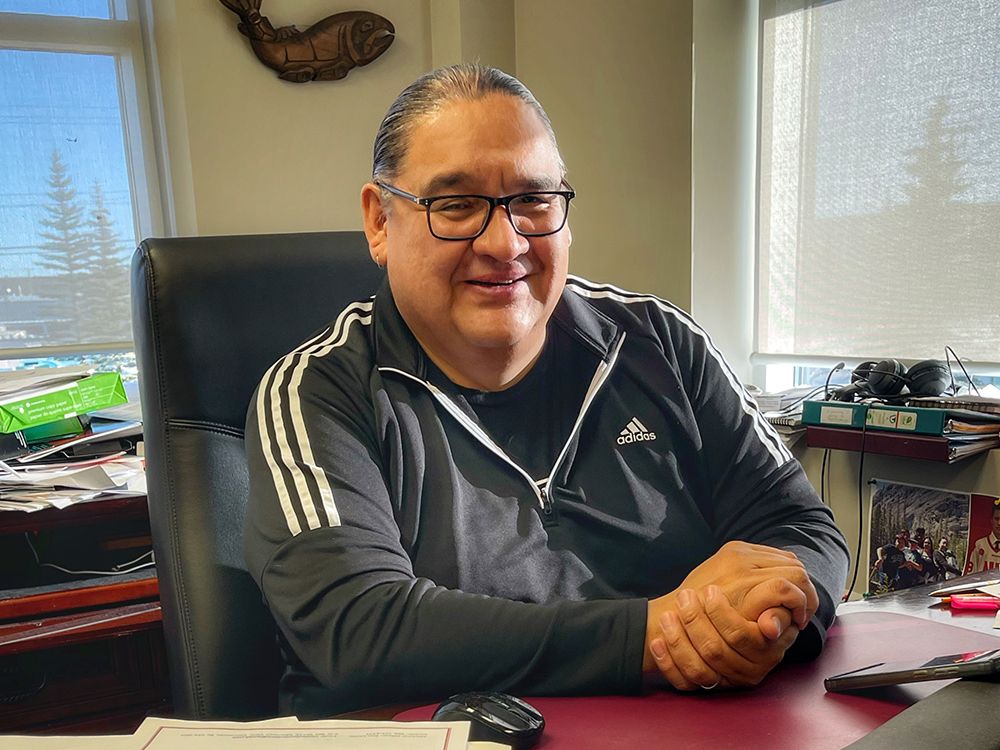Stephen Buffalo is a very constructive guy. He’s a man who seeks solutions, and he’s open to Prime Minister Mark Carney’s ambitious nation-building campaign. He also wants Carney and all Canadians to understand, though: Indigenous consent to these projects has a price tag.
“Give us a chance to make our own wealth,” says Stephen, long-time advocate for First Nations’ economic development and member of the Samson Cree Nation from Maskwacis, Alta.
“To be part of the mainstream and part of the economy and at the end of the day, everyone benefits: the proponent benefits, the government benefits, and we benefit, you know, First Nations that are participating.”
The “new” Liberal government has pledged — in the recently tabled “One Canadian Economy Act” — to speed up approvals for major energy and infrastructure projects that strengthen Canada’s autonomy, resilience and security, have undeniable national benefits, are likely to be successfully executed, drive Canada’s clean grown potential and reflect priorities of Indigenous leaders.
Carney assured that fast-tracking major projects won’t shortcut meaningful consultation with Indigenous peoples whose Charter or treaty rights may be affected. A Major Projects Office, created to assist project proponents through the assessment and consultation process, will lean on an Indigenous advisory council for advice.
And in an effort to reinforce Indigenous voice in governance, Carney’s cabinet includes three Indigenous ministers: Rebecca Chartrand, as minister of northern and Arctic affairs; Mandy Gull-Masty, as minister of Indigenous services; and Buckley Belanger, as secretary of state for rural development.
I ask Stephen: Do Carney’s announcements signal real change in the federal government’s paternalistic relationship with Indigenous communities? After watching the undermining of Jody Wilson-Raybould’s leadership by the previous Liberal administration, I’m wary.
He restates my question. “Can we take this as a reset?”
He grins, and answers: “I’m trying to.”
This isn’t the first time I’ve sat down with Stephen for a no-holds-barred conversation about how Indigenous leaders perceive what’s going on in the world. As CEO of the Indian Resource Council, Stephen speaks on behalf of 130 First Nations across Canada that have oil and gas production on their land, or the potential for production. He also speaks forcefully — as a 53-year-old father who wants to see his kids have the opportunity to thrive in mainstream society.
When we met 18 months ago, he was lobbying to have the Indian Act repealed because it was getting in the way of First Nations’ full participation in resource development. “We cannot live in soft communism,” he chided, “where bureaucrats tell us how to live, what to do.”
Today, we meet for coffee at Grey Eagle casino in Calgary, and while he’s fairly upbeat about the potential for change, his sense of urgency is more palpable. Managing poverty and addressing social issues, every day, is challenging for his leaders, he reports; it takes them away from other important stuff.
Canada’s Indigenous communities are captives of welfare. “Socialism right now is ruling the day,” he laments.
“It saddens me,” he shares, “some of our people are stuck in the dark, that troubled life. There’s not a city in Canada, you go downtown and you don’t see a lot of our people that have gone through struggles.” And, he adds, “Funding we get under the federal government is heavily scrutinized and has a lot of red tape. The option is to come to the major centre and try to make it. It doesn’t quite work out for everybody.”
He endorses government-backed loan guarantees to enable Indigenous ownership in projects. For eight years, Stephen’s been on the board of Alberta Indigenous Opportunities Corporation, a provincial Crown corporation, and now we have a national loan guarantee program.
“Not too many Nations can dig in the pocketbook and say, ‘OK, I’ll put down $100 million.’ Not too many Nations can do that,” he chuckles.
Last month, he explains, Canada Indigenous Loan Guarantee Corporation’s inaugural guarantee made possible the purchase of a 12.5 per cent ownership interest in Enbridge’s Westcoast natural gas pipeline system by 36 First Nations in B.C. On June 1, Carney doubled the federal Indigenous loan guarantee program from $5 billion to $10 billion — and opened it to sectors outside of energy and natural resources.
“But,” Stephen redirects the conversation, “back to the commodity that’s going through the pipe: What does it do for the (First) Nation, the province and the proponent?” It’s not enough, for Stephen, that Indigenous communities can invest in infrastructure; he wants them to be able to own an interest in the resource upside too.
“You know,” he says, “there’s fear-mongering in and around everything — be it coal mining, uranium mining, Ring of Fire. We are doing environmental disruption, no matter what we do. But at the end of the day … this thing called FPIC — consent — now has a price tag.”
FPIC is the acronym for free, prior and informed consent under the UN Declaration of the Rights of Indigenous Peoples. Stephen’s convinced there’s an opportunity for Indigenous communities to change the narrative, and to participate in resource sharing. “That’s consent with a price tag on it,” he reiterates.
Some Canadians, I suggest, will find Stephen’s conclusion cynical. And yet, quite honestly, I find his candour refreshing and arguably constructive. All that back-and-forth emotional blather between federal Justice Minister Sean Fraser and Assembly of First Nations Chief Cindy Woodhouse Nepinak — Fraser’s apology for potentially eroding a precarious trust by even discussing FPIC in terms of veto power — feels disingenuous.
The truth is, many Indigenous peoples in Canada are not anti-development but yes, their consent does have a price tag.
Right now, there are Indigenous naysayers who warn against the fast-tracking of nation-building projects. Some predict expedited approval processes will trigger litigation and projects will be hung up by court proceedings.
Protesters went to Queen’s Park to denounce Ontario Premier Doug Ford’s government passing of Bill 5 — giving the province sweeping powers to speed up mining or development projects including those in the remote Ring of Fire region of Northern Ontario — and warned of protests and blockades akin to those seen during the Idle No More movement.
But, Stephen and I agree, that’s old thinking that risks holding us all back. Many of the tough questions have previously been referred to the Supreme Court of Canada, Stephen suggests; we have precedent. Carney could decide to exercise federal powers to move a project forward for the greater good, something I find tempting. Yet I don’t disagree with Stephen’s expectation that leaders sit down with people, to understand the true reasons for dissent, including the possibility of foreign interference.
Manitoba Premier Wab Kinew’s style of leadership, Stephen adds, is particularly compelling.
“He’s an NDP,” Stephen chuckles, “and he’s saying, we can’t deal with social issues without a strong economy.”
Our website is the place for the latest breaking news, exclusive scoops, longreads and provocative commentary. Please bookmark nationalpost.com and sign up for our newsletters here.







